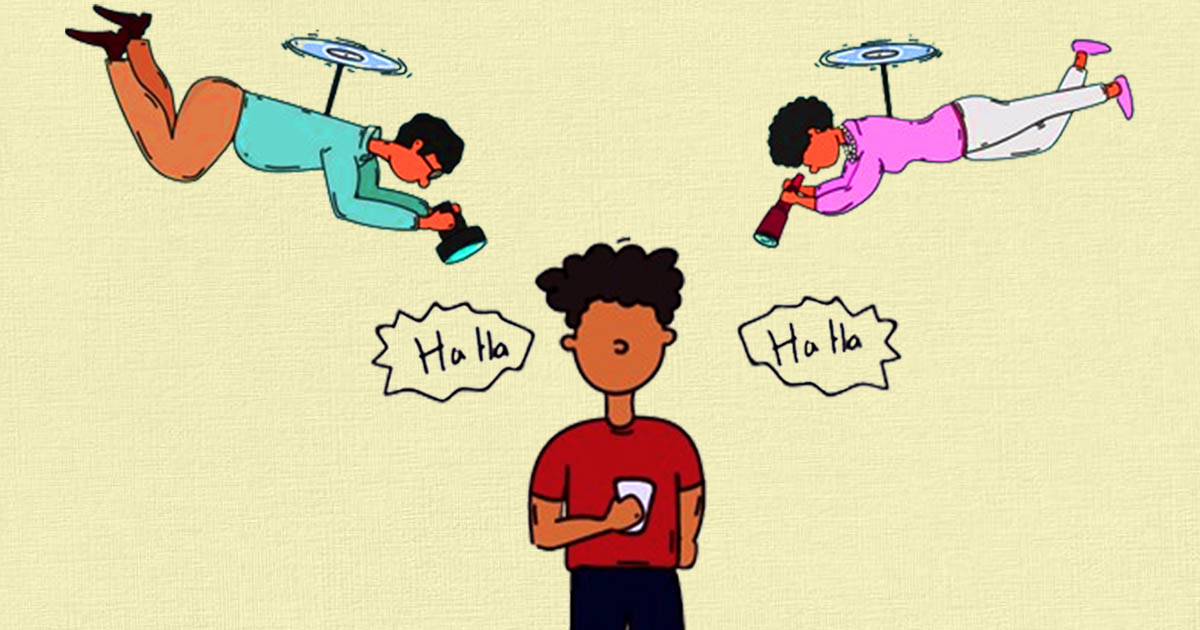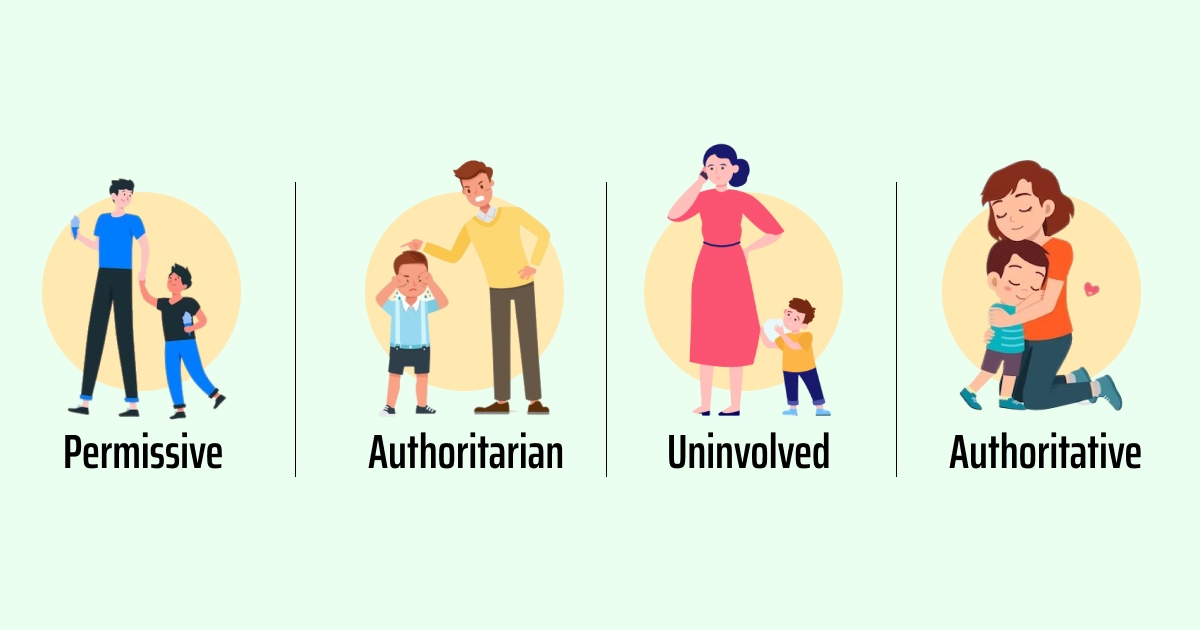Ever get that sense, as a parent, that you’re always trying to control your child’s life? Well, there could be a bunch of reasons behind this, and one of them is what they call helicopter parenting. You know, when we just can’t seem to resist the urge to oversee every little aspect of our child’s world. But why do we do it? Well, it’s often because we believe it’s the only way to help them succeed in a world that feels like a constant rat race.
Hold on a second, because sometimes, this helicopter parenting approach can actually do more harm than good. Read the article below where we’ll start by explaining what is helicopter parenting moving forward to why it’s not good to be a helicopter parent, and ending with tips on how to stop doing it.
What Is Helicopter Parenting?
The term “helicopter” suggests that some parents hover over their children, much like a helicopter, in an attempt to ensure their safety, success, and well-being.
Helicopter parenting refers to an overly involved and controlling style of parenting where parents closely monitor and manage various aspects of the children’s lives.
Helicopter parenting is when you are super involved and basically try to control your child’s life like it’s a video game you are playing. It might come from a place of love, but it can have both positive and negative effects on your child’s development.
Knowing what is helicopter parenting can really help you find the right mix between being there for your kids and letting them spread their wings. It’s like finding that sweet spot between caring for them and letting them grow independently.
Characteristics Of A Helicopter Parent
Helicopter Parenting style often comes with a set of identifiable traits that can be called characteristics of a helicopter parent.
Ever wonder if you might be a bit of a helicopter parent? It’s worth checking out some common characteristics of parenting style, just to make sure you’re striking the right balance between taking care of your kiddos and letting them explore their own path.
1. As A Parent you Navigate Every Step
Helicopter parents tend to be super hands-on, monitoring every aspect of their child’s life. They’re like a personal GPS, making sure everything is on track. But this constant surveillance can unintentionally hold your child back from learning through their own experiences and developing problem-solving skills.
2. You Are Always In A Rush To Solve Problems
Whenever your child faces a challenge, be it a disagreement with a friend or a tough school situation, you’re ready to swoop in and save the day. While it’s a loving instinct, it might prevent your kids from figuring things out on their own and becoming more resilient.
3. Your Over-protectiveness Is Going Out Of Hands
Of course, you want to shield your children from discomfort, failure, or harm. However, overdoing it can hinder their ability to tackle life’s challenges independently. It’s your responsibility as a parent to let them learn how to handle tricky situations themselves.
4. You Have Extraordinarily High Expectations
Helicopter parents often set incredibly high standards for their children, expecting them to excel in everything from academics to extracurricular activities. But remember, constantly pushing for perfection can create a lot of stress and anxiety for your kids.
Wanting the best for your child is natural, but it’s important not to follow a helicopter parenting style, as it can lead to problems in the parent-child relationship.
Positive Effects Of Helicopter Parenting
Now, let’s dive into the positive effects of the helicopter parenting style, because yes, there are some benefits to this approach.
As a parent who’s always there, you’ll be pleased to know that it’s not all negative. Here’s how the positive effects of helicopter parenting can actually have some positive effects on your child’s development.
1. Enhanced Safety for Your Little Ones
Your watchful eye and keen awareness of your child’s activities and social circles mean you’re like a protective shield. You’re always on the lookout to keep them safe, whether it’s in the real world or online. Your heightened awareness can help prevent accidents, risky behavior, and exposure to harmful situations.
2. Kids Do Well in School
You’re not just hovering; you’re also right there when it comes to schoolwork. Your hands-on approach means you’re involved in their assignments and engaged in their educational activities. This extra support can lead to better academic performance because your kids receive consistent guidance and help to excel in their studies.
3. Helping Kids Feel More Confident
Your regular praise, encouragement, and assistance are like a confidence booster for your children. When they know you’re there to support them, it contributes to the development of their self-esteem and self-confidence. They feel more capable and assured in their abilities to take on challenges.
4. Close Bond Between Parents And Children
Your over-involvement is just to protect and guide; it also fosters a deeper emotional connection between you and your children. Your constant presence and support create a sense of security and attachment. This means your kids grow up feeling valued and cared for, resulting in a stronger parent-child bond.
Your commitment and involvement in your child’s life can lead to their safety, success in school, a boost in their confidence, and a closer relationship with you.
But, even though being super involved in your child’s life can seem like a good thing, it’s also important to find a middle ground between being involved and letting them do things on their own.
Being too involved can lead to the dangers of helicopter parenting which parents need to be careful about.
Dangers of Helicopter Parenting
Sometimes, it’s tricky to know when we’re helping and when we’re holding kids back too much. It’s important to realize the problems that can come from helicopter parenting to make sure that your kids grow up well.
Scroll below to learn about the possible dangers of helicopter parenting, this is one of the ways to stop parents from being too controlling.
1. Children Will Struggle In Decision-Making
When parents are always there to provide solutions, kids might find it tough to make independent decisions. Think of it like this: if you’re always holding the map, they might struggle to navigate when you’re not around.
2. Decreased Ability To Perform Tasks
Helicopter parenting can unintentionally prevent your children from developing crucial life skills like problem-solving and bouncing back from failures. It’s like taking away their chances to learn how to ride a bike; they won’t know how to balance when you eventually let go.
3. Dependency On Parents For Everything
Perhaps one of the biggest dangers of helicopter parenting is that it can lead to your kids becoming overly reliant on you, even for small tasks. This over-dependency can impact their sense of autonomy and make it harder for them to transition into adulthood.
4. Too Much Anxiety and Stress Due To Over-Involvement
The constant pressure to meet your expectations and standards can contribute to increased anxiety and stress levels in your children. They may end up prioritizing your expectations over their own desires and dreams, which can be overwhelming.
Remember, the goal is to raise independent, resilient, and confident kids, and for that purpose, it is necessary to stop following the helicopter parenting style.
Read more here: What Is A Single Parent Family? Understanding It’s Advantages and Disadvantages
Helicopter Parenting In Different Parenting Styles
Helicopter parenting can take on various forms within different parenting styles. While each style has its unique approach to raising children, the tendency to hover or over-involve can be observed, affecting children in various ways.
The helicopter parenting style is practiced within all the different parenting approaches, so it will be an interesting approach to learn how helicopter parenting hinders nurturing healthy and independent children.
1. Authoritarian Parenting Style
The Strict and Controlling Parents
Authoritarian parents are like strict bosses. They’re always giving orders and don’t let kids decide much for themselves, even in helicopter mode.
This can make children feel less confident in making choices and expressing themselves, and they might struggle with independence as they grow up.
2. Authoritative Parenting Style
The Rule-Setting and Listening Parents
These parents set some rules, but they also have conversations with their kids and pay attention to their thoughts.
When they helicopter parent, it means they can get overly involved, always keeping a close eye on and directing their kids, even when it’s not really necessary.
This can sometimes make children feel like they can’t do things on their own and might struggle with decision-making.
3. Permissive Parenting Style
Let-the-Kids-Do-Whatever Parents
Permissive parents usually allow their kids a lot of freedom and don’t impose many rules.
However, when they switch to helicopter parenting, they become strict and controlling, which can confuse children and make them feel overwhelmed and uncertain about what’s expected of them.
This inconsistency can lead to confusion and stress for the kids.
4. Uninvolved Parenting Style
The Not Very Interested Parents
Uninvolved parents don’t pay much attention to their kids most of the time.
However, when they switch to helicopter parenting mode, they become overly involved and want to control everything their kids do.
This inconsistency can confuse children, making them feel neglected and stifled simultaneously, which may lead to feelings of insecurity and a lack of trust in their parents.
Effects Of Helicopter Parenting On Adults
You know, helicopter parenting doesn’t just stop having an impact when your kids grow up; it can affect them even when they are grown adults. The way you tried to help and protect them can sometimes lead to some surprising outcomes (not always good ones, though!).
So, let’s take a closer look at how helicopter parenting can affect your adult children and shape the way they go about life:
Decision Dilemmas:
You know, all that constant guidance they got growing up can sometimes make it hard for them to make decisions as adults. It’s like they’re used to having someone else hold the map, so navigating life’s choices independently can feel a bit daunting.
The Doubt Dilemma:
All that continual assistance from you can unintentionally sow the seeds of self-doubt in your adult children. Your kids might start questioning their own abilities and feel uncertain about handling situations without external guidance.
Fear of Mistakes:
When you’re used to having a safety net in the form of overly involved parents, the fear of making mistakes can take root. It’s like they’ve always had someone to catch them, so the thought of falling on their own can be anxiety-inducing.
Relationship Ripples:
Helicopter parenting can leave a mark on how adults deal with conflicts and challenges in their relationships. Your child might struggle with independently resolving issues because they haven’t had much practice during their growing years.
So, you see, the effects of helicopter parenting don’t just fade away with childhood. They can echo into adulthood, shaping how your kids approach life’s challenges and opportunities. It’s important to recognize these effects and consider strategies to help them build healthy relationships and live their life confidently.
How To Stop Being A Helicopter Parent
If you think you’re being too controlling as a parent and want to change that, don’t stress. Here are some ways to stop being a helicopter parent and find a better, more balanced way of parenting.
1. Take a Pause And Introspect Your Parenting style
Start by taking a moment to think about your parenting style. Are you always stepping in? Are you finding it hard to let go? Recognizing these tendencies is the first step toward change.
2. Set A Certain Boundary
When learning how to stop being a helicopter parent it is important to let your child explore and learn within their age-appropriate boundaries. Give them some room to tackle challenges on their own, even if it means letting them stumble a bit.
3. Do Not Forget To Encourage Your Child
Support your child in making decisions. Allow them to choose things and, yes, sometimes make mistakes. These experiences help them learn and grow a lot.
4. Be A Guide And Train Them
Instead of always being in control, try giving advice. Help when they need it, but also give them space to be in charge. This is how you can stop being a helicopter parent.
A Word From Mind Family
Parenting doesn’t have a single “right” way. Helicopter parenting has both good and not-so-good parts. Different parts of different parenting styles can be better for different families and kids.
Keep in mind that making the shift from helicopter parenting to a more well-rounded approach is a gradual process, don’t try to fasten up the process.
Instead of always telling them what to do, try giving suggestions. Be there when they ask for help, but also let them take charge sometimes. This will help them to learn basic life skills and they will be a better individual.
Frequently Asked Questions(FAQs)
1. What is a Snowplow parenting?
Snowplow parenting, often referred to as lawnmower parenting or bulldozer parenting, is a parenting approach characterized by the aim to eliminate any challenges or hurdles from a child’s journey, in order to prevent them from encountering pain, failure, or discomfort.
2. What is the least effective parenting style?
According to psychologists and experts, the least effective parenting style is one marked by being uninvolved or neglectful. Research indicates that children raised by neglectful parents often face the most unfavorable consequences.
3. What is the modern parenting style?
Modern parenting style prioritizes nurturing robust connections while imparting the skill of independent thinking and the ability to make accountable choices to the children.


















Leave a Reply